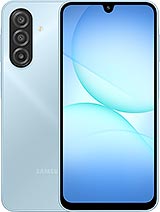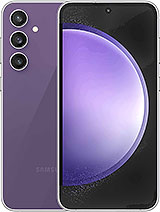Samsung Galaxy F54 alternatives
Tap above to see alternatives.
Samsung Galaxy M17 alternatives
Tap above to see alternatives.
Samsung Galaxy F54

Samsung Galaxy F54
-
Exynos 1380
5 nm
-
6000 mAh
25W
-
6.7"
1080 x 2400 pixels
-
108 MP
4K@30fps
- Specs
Samsung Galaxy M17

Samsung Galaxy M17
-
Exynos 1330
5 nm
-
5000 mAh
25W
-
6.7"
1080 x 2340 pixels
-
50 MP
1080p@30fps
- Specs
4x2.4 GHz Cortex-A78
4x2.0 GHz Cortex-A55
2x2.4 GHz Cortex-A78
6x2.0 GHz Cortex-A55
6GB 128GB
f/1.8, (wide), PDAF, OIS
8 MP
f/2.2, (ultrawide), 1/4.0", 1.12µm
2 MP
f/2.4, (macro)
f/1.8, (wide), 1/2.76", 0.64µm, AF, OIS, Up to 10x Digital Zoom
5 MP
f/2.2, (ultrawide), 1/5.0", 1.12µm
2 MP
f/2.4, (macro), 1/5.0", 1.75µm
1080p@30/60fps
gyro-EIS
f/2.2, 26mm (wide), 1/2.8", 0.8µm
f/2.0, (wide), 1/3.1", 1.12µm
1080p@30fps
SIM1: Nano, SIM2: Nano
10 5G bands
n1, n3, n5, n7, n8, n28, n40, n41, n77, n78
13 5G bands
n1, n3, n5, n6, n7, n8, n26, n28, n40, n41, n66, n77, n78
In this performance comparison, the Samsung Galaxy F54 with its Exynos 1380 (5nm) performs better than the Samsung Galaxy M17 with the Exynos 1330 (5nm), thanks to superior chipset efficiency.
Samsung Galaxy M17 offers 6 years of OS updates, whereas Samsung Galaxy F54 provides 4 years. For security updates, Samsung Galaxy M17 offers 6 years of support compared to Samsung Galaxy F54's 5 years.
Both Samsung Galaxy F54 and Samsung Galaxy M17 feature AMOLED displays, offering vibrant colors and deeper blacks. In terms of smoothness, Samsung Galaxy F54 offers a higher 120 Hz refresh rate, ensuring fluid scrolling and animations. Samsung Galaxy M17 also boasts a brighter screen with 1100 nits of peak brightness, enhancing outdoor visibility. Both phones have the same screen resolution.
Samsung Galaxy F54 comes with a larger 6000 mAh battery, which may offer longer usage on a single charge. Both devices support the same wired charging speed of 25W.
Samsung Galaxy M17 includes an IP54 rating, while Samsung Galaxy F54 lacks an official IP rating.
¹ Scores can vary even with the same chipset due to RAM, thermals, and software optimization.










